Introduction
New and important IMO/SOLAS requirements for the maintenance, examination, operational testing, overhaul and repair of lifeboats and rescue boats by ‘authorised service providers, entered into force on 1 January 2020. Further to MM’s Risk Bulletin No. 17 regarding the risks of lifeboat ‘on-load’ release hooks, it is essential that MM members understand the new SOLAS rules designed to overcome these risk and ensure full compliance. This supplementary Risk Bulletin is focused on assisting MM members, their ship managers and masters to accomplish this obligation and further reduce lifeboat accident risk exposure.
Background
Full details of the new requirements are contained in IMO Res MSC.402(96) which amend and update SOLAS regulations III/20 and III/36. They now impose a mandatory obligation, apart from weekly and monthly ‘routine maintenance’, for the periodic maintenance and inspection of lifeboats and rescue boats, launching appliances and release gear to be carried out only by ‘authorised service providers’. This work must be accomplished in accordance with equipment manufacturers and shipboard procedures manuals. It must also be carefully recorded for inspection by Flag State and Port State Control authorities.
Regulatory Change Summary
IMO Res MSC.402 (96) provides that the LSA Equipment covered by the updated SOLAS rules extends to:
- Lifeboats (including free-fall lifeboats), rescue boats and fast rescue boats;
- Launching appliances/davits and on-load and off-load release gear for lifeboats (including primary and secondary means of launching appliances for free-fall lifeboats), rescue boats, fast rescue boats and davit-launched liferafts.
A summary of the new obligations imposed and relevant definitions is as follows:
- Authorised service providers are companies authorised by the flag administration or their RO in accordance with Sections 3 and 7 of Resolution MSC.402(96). It is important to note that the requirements apply equally to manufacturers when they are acting as authorised service providers.
- Certification of personnel will be accomplished by authorised service providers. Each authorised service provider must certify its personnel for each make and type of equipment to be worked on and the specific work activities to be accomplished. Completion of specialist training, including an equipment type specific competence assessment, is a prerequisite for Certification.
- Weekly and monthly inspections and routine maintenance of lifeboat and davit equipment must be carried out either by authorised service providers, or by shipboard personnel under the direction of a senior ship’s officer in strict accordance with the equipment manufacturer’s maintenance manual(s).
Note: It is anticipated that most shipowners will elect the option for ‘routine maintenance’ work to be done by ship’s crew. This work must be carefully supervised by a ‘senior officer’ (e.g. Chief Officer or Master) and carefully recorded. These records should be approved and signed by the supervising ‘senior officer’ and then filed for inspection.
- Annual thorough examinations and operational tests must be carried out by the manufacturer’s certified personnel or an authorised service provider. The option is available for ship owners/managers to become authorised service providers subject to their formal training and authorisation by flag state.
Note: It is anticipated that most shipowners and managers, due to cost and administrative burdens, will not elect to become ‘authorised service providers’ and will instead contract with their Class Society to perform this function.
- Five-year thorough examinations as well as any overhaul, overload operational test or repairs to the equipment, must be carried out by the manufacturer’s certified personnel or an authorised service provider.
Compliance Obligations and the ISM Code
It will be seen that the amended SOLAS regulations are quite complex. If MM members have not already done so, they should now confer directly with their flag state administration or their Classification Society/ Flag State RO. Members will then be able to be guided as to the inspection services they will require and be assured that they are taking all of the steps necessary to ensure full regulatory compliance.
The closely associated compliance requirement is that members must also ensure they have updated their ISM Code/SMS procedures to reflect the amended SOLAS requirements relating to lifeboat and davit maintenance and testing. The updating process of SMS procedures should be accomplished as a matter of priority.
Conclusion and Takeaway
As advised in MM’s Risk Bulletin No. 17, numerous crew injury and death accidents related to lifeboat davit maintenance and operation have occurred since the introduction of on-load release hooks. IMO’s stated goal is to prevent further accidents involving survival craft and associated drills by regulating both the servicing of these appliances and the specialist training required to do so. This goal can only be attained with the full cooperation and support of shipowners, their managers and crews. If achieved, crew injuries and deaths will be prevented.
MM now invites their members to distribute this Risk Bulletin No 21 to their ship managers and masters. They should then work with them and their flag state administration to ensure that the new SOLAS lifeboat and davit maintenance amendments are fully understood and implemented throughout their fleet as quickly and effectively as possible.
Members are respectfully reminded that it is a warranty term of MM P&I entry that their vessels be maintained in strict compliance with Flag State regulation, inclusive of SOLAS and the ISM Code (where applicable), at all times. Members should also remember that regulatory non-compliance may lead to their vessel being detained by Port State Control.


